I feel as if I’m on a blind date—I don’t know what or whom I’m looking for. Will Hassan, my contact, be arriving by car, bike, motorcycle, petit taxi? What will he be wearing? How will he recognize me? I am standing at early dusk in the shadow cast by Kasbah Taourirt, the tourist attraction par excellence, waiting to see how and whether I will be seen.
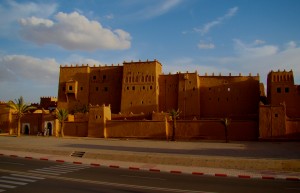
No joy. In the end, I have to go back to the car to find the phone I’ve left. Hassan has left two messages. Evidently, we are neither of us what the other expected. Even once Hassan has told me that he is standing in front of the Marmara bus, I seem to drift right past him. I’m about to phone again when he calls to me, coming from the direction I’ve just been.
We go to meet Ahmed at the Centre de Documentation Pedagogique (CDP—center for teaching documentation) and there’s another odd echo of a feeling—this time of a bargain waiting to be struck. A weird benevolent-Godfather kind of vibe. Would I work with students as well? at the end of November? “Ah, yes, that is what we wanted to know. Very good. We invited you to work at this time with the French group, but we don’t need to be limited to that time. There is a long history of Moroccan-American collaborations. Very good.”
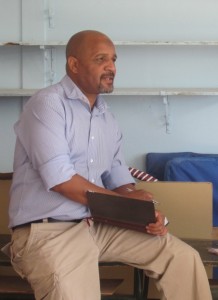
Ahmed tells me tomorrow we will go to Telouet, an area associated with the de facto ruler of this part of Morocco in the early twentieth century. Glaoui? I venture. “Yes. All this area is known as Glaoua. So you will learn a little history, a little geography.”
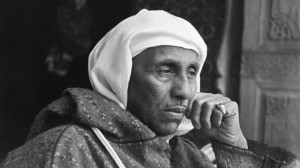
Thami el Glaoui: I’ve read a little about his immense power and wealth, and his lack of squeamishness when it came to extending either.
After this short meeting, I follow Hassan’s car over a narrow causeway to the newer section of Ouarzazate, to his family’s home. I will be staying with them both nights I am in Ouarzazate. Bleary from the eight-hour drive, I try to summon the mental energy to recall my small portion of Darija.
Hassan’s family doesn’t seem to eat much meat, and I don’t think that has anything to do with my visit. The first night I stay with them, they eat semolina soup; the second night, rice pilaf. Dinner is late, maybe 8:30, about the time I’m ready to crash; Hassan’s nephew stays up late, and as we drive through Ouarzazate, the streets are full of children out with their families. Don’t they fall asleep in school, I wonder?
Just as my brain feels ready to explode, a friend and neighbor of Hassan’s stops by to meet me. His name is also Hassane, though for reasons unclear to me the spelling conveniently includes a distinguishing E. I revive a little on discovering that Hassane speaks fluent English and is working on a PhD in cultural studies at the university in Fez.
“What did you think of the landscape on your way down?” Hassane asks me.
“Amazing! It was like driving through the Grand Canyon,” I say.
“Yes, this is what everyone says!” Hassane replies, underscoring my own sense of the predictability of my response.
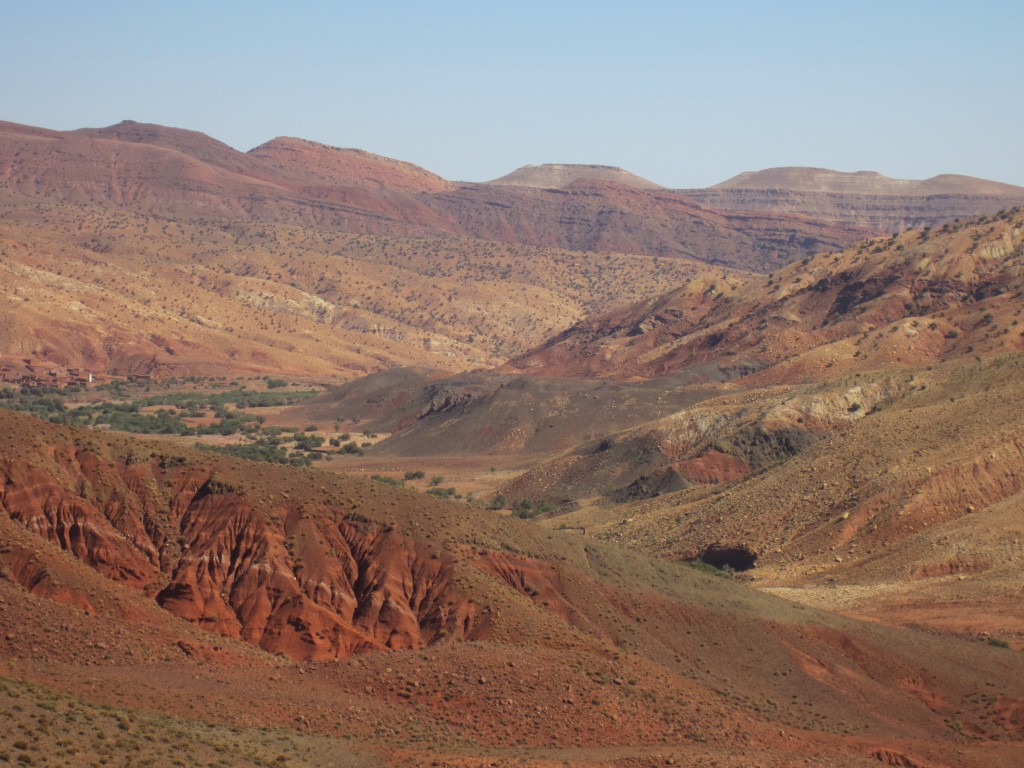
We go on to talk about the books we have both read, enthusing together about the work of Brian Edwards in Morocco Bound: Disorienting America’s Maghrib.
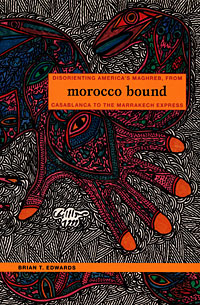
Even on the drive down, I had been thinking about Edwards, and his chapter on how American soldiers in Morocco during the second World War responded to Morocco as a mixture of the Wild West and a kind of Biblical pastiche.
“Here I go,” I thought, looking out the window at that Grand Canyon landscape, “making that same old American translation of the unknown into the known.” But is there really an alternative to this habitual recoding of the unfamiliar in terms of the familiar?

Can we just confront the unknown head on—or will we always duck aside at the last minute, giving up on the cultural game of chicken?
The problem with projection and transposition are the misrecognitions that come with them. So…. focus on geology: seeing the angle of the stone, imagining the the pressures that must have thrust it up out of the ground.
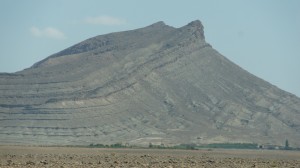
Focus on specifics—the details of this particular teaching task, this context—to help separate reality from imaginary projections.
I have so much to learn.